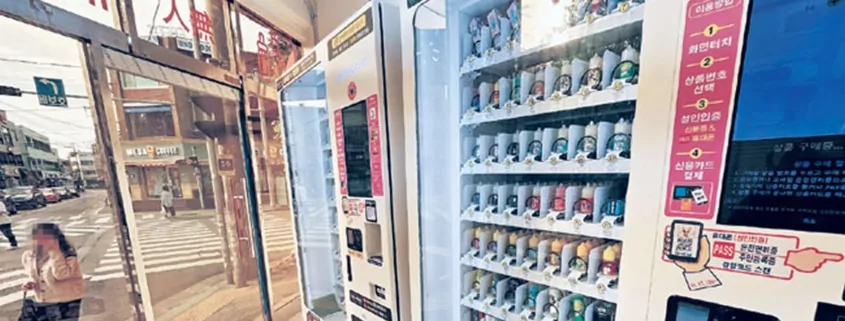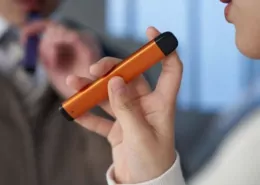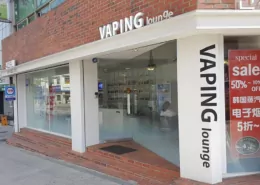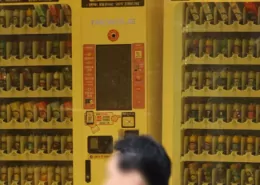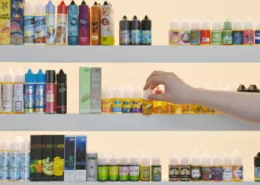Synthetic Nicotine E-Cigarettes: A Regulatory Blind Spot in South Korea
In a concerning trend, synthetic nicotine e-cigarettes have become increasingly accessible to minors in South Korea, with lax regulations and enforcement enabling their widespread distribution through unmanned stores and online platforms. As of May 9, 2024, the majority of these products remain in a “regulatory blind spot,” leaving the door open for teenagers to easily purchase them without proper age verification.
A recent investigation revealed that 84% of unmanned e-cigarette stores nationwide do not adhere to proper age verification protocols, with doors often left open and no adult authentication devices in place. In one such store in Mapo-gu, Seoul, various synthetic nicotine e-cigarettes in enticing flavors like peach and lemon were readily available from a vending machine, as if they were mere beverages. Despite a sign instructing customers to insert their ID and authenticate their face, the reality was far more lenient, with the machine immediately proceeding to the payment screen upon insertion of a resident registration card.
The allure of these seemingly less harmful alternatives to traditional cigarettes has piqued the curiosity of many young people, as evidenced by the account of A (15), a middle school student who frequently visits the store. The prevalence of synthetic nicotine in the market is staggering, with 9 out of 10 liquid e-cigarettes containing this substance. Due to a loophole in the current law, which does not classify synthetic nicotine cigarettes made with chemicals as “cigarettes,” these products are being sold indiscriminately through unmanned stores and online platforms.
The lack of proper regulation has also given rise to harmful practices, such as the addition of nicotine shots to increase the concentration of synthetic nicotine cigarettes. While liquids containing more than 1% nicotine are generally classified as “toxic substances,” and those selling liquids exceeding 2% must obtain a separate business license, some e-cigarette stores near Hongik University Station openly offer to increase the nicotine concentration up to 3%, despite the illegality of such practices.
The online distribution of synthetic nicotine cigarettes is even more alarming, with 92.2% of liquid e-cigarettes sold online containing this substance. Teenagers can easily create accounts and order these products by simply providing an adult’s resident registration number. Marketing campaigns, such as “1+1” promotions and discount coupon giveaways, which are illegal for regular cigarettes, are rampant in the e-commerce space. Social media platforms like YouTube and SNS are flooded with videos recommending various synthetic nicotine cigarettes and reviews from teenagers who have purchased these products on behalf of others.
As the government’s efforts to prevent youth smoking are being undermined by the unchecked spread of synthetic nicotine e-cigarettes, it is crucial that swift action be taken to close this regulatory loophole and protect the health and well-being of young people in South Korea. Stricter enforcement of age verification protocols, clearer classification of these products under the law, and tighter regulation of their online distribution are essential steps in curbing this growing problem.
- News source: ‘구멍 뚫린’ 합성니코틴 담배 시장… 청소년도 자판기로 손쉽게 구매
- Is It Illegal to Vape or Smoke While Driving in Minnesota? - August 15, 2025
- American Airlines Vaping Passenger Alleges Assault in Police Report - August 15, 2025
- NEXA PIX 35K Disposable Vape with Crystal Tank Review - August 15, 2025

